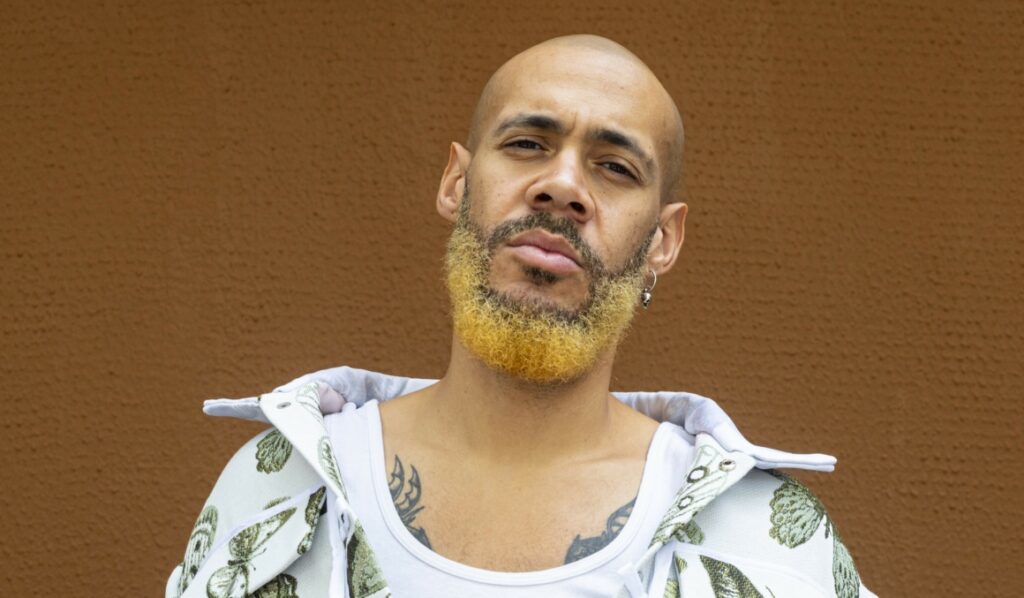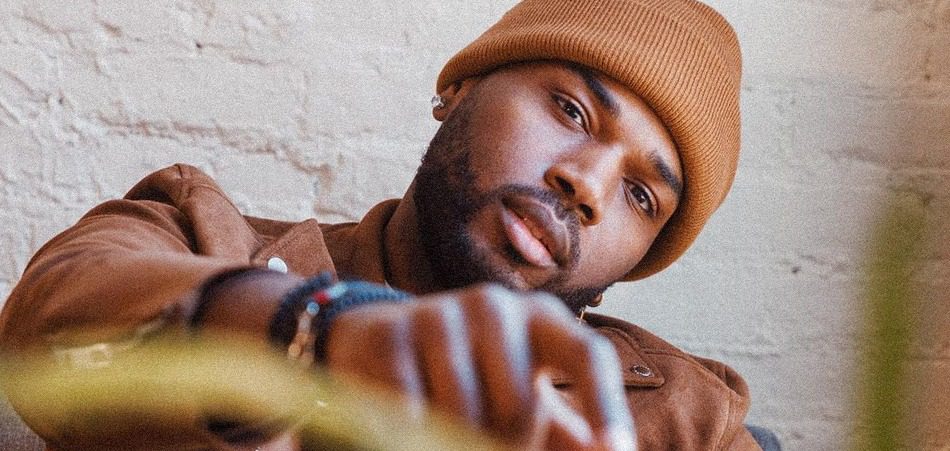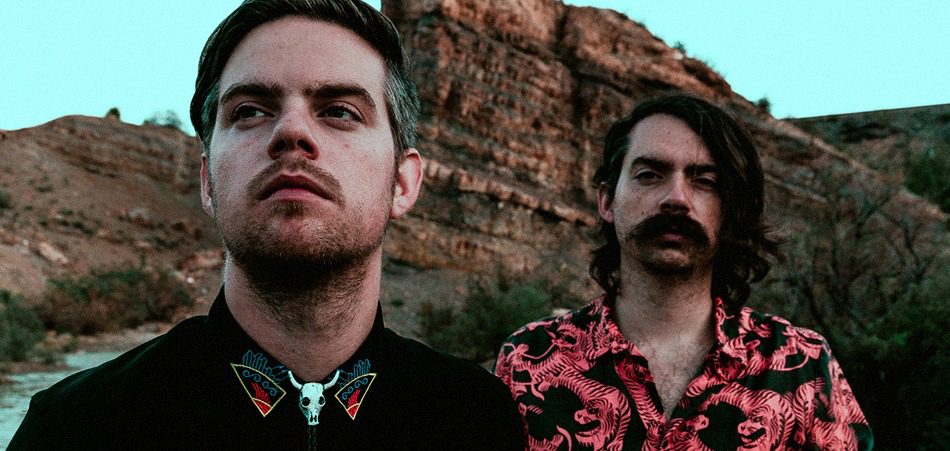From my mama’s kitchen table from the other end of a Zoom call, I sat down with Virginia-born, currently Chicago-based rapper/ poet McKinley Dixon on his upcoming monolith of a project: Beloved! Paradise! Jazz!? and its major influence from Toni Morrison.
[embedded content]
Named after author Toni Morrison’s famed “Dantesque Trilogy”, Beloved! Paradise! Jazz? is Dixon’s 4th full-length LP and a highlight among the rapper’s already exceptional discography.
Dixon is a poet whose work teeters the line of critiquing social conditions that have impacted him and the people around him and expressing joy to the fullest degree. Each album builds upon the strengths and creative choices expressed in the previous, adding to a collective identity Dixon shaped to comment on a larger narrative.
The Importance of Self Belief and Who Taught You to Hate Yourself? act as foundational pieces where Dixon analyzes a harsher upbringing and how it socially impacts people of a marginalized group yet he tackles a firm question in “what do you want to do when you grow up?”.
For My Mama And Anyone Who Look Like Her finds the answer to the previously asked question and focuses on finding strength through a communal framework. It’s joyous in all regards.
Then finally comes Beloved! Paradise! Jazz!?, a statement piece that explores chaos, community, and joy while paying homage to one of the most seminal writers of the last century.
Beloved! Paradise! Jazz!? Is a beautiful testament to the human condition, exploring a myriad of emotions from grief to triumph in an explorative body of work that is consistent as it is layered. From the guest features to the isolated instrumentals to the placement of each song, everything on this album is cohesively intentional and carried with care and thought.
Every song on the album falls under a category derived from the name of the album, giving it an extra layer of meaning and weight, while also being capable of being enjoyed out of order.
From the album title to the individual pieces that make up the instrumentals, there’s a lot to dissect on the project. I sat down with the rapper over Zoom to discuss Toni Morrison, her impact on his writing, and his recent move to Chicago.
[embedded content]
EARMILK: You moved a year ago, is that when you started making the record?
McKinley Dixon: “That’s when we started physically recording the record. I’ve been working on bits and pieces of it since November the year before that. I usually write before I actually start using the instrumentals cause I like giving myself a headstart.”
What prompted the move to Chicago?
“I just needed a change of scenery. I wrote three records in Virginia. Who taught you [ Who Taught You to Hate Yourself?], Importance [The Importance of Self Belief ], and For My Mama [For My Mama And Anyone Who Look Like Her] were written in Virginia so at some point I needed to change my environment to write new stories. I live in Garfield Park now, a really beautiful side on the west side of Chicago.”
Your previous albums have always carried this narrative of touching on either material conditions that have shaped your upbringing or communities around you, but this one fully embodies the sentiment of Toni’s books so what was different going into making this project?
“I always wanted to do something in that vein, in my mind I’m definitely a student of Morrison in the sense that I analyzed everything she’s written. I actually have all of her books over here and they sort of all do a great job of capturing the human experience in a way that I wanted to put into my work”.
“They’re all very meticulously written and studied about what they wanted to talk about, and If I didn’t have the time to study myself, what do I know meticulously about my life then it sort of becomes this thing where all of these then become conversational pieces and not just songs. Me being vulnerable with the audience in a way shows and draws from Toni Morrison, vulnerability and being comfortable”.
So you have all of her books?
“Yup.”
“Got every single one of them right there. She only wrote 10 books, I got all of them, I mean, Paradise is one of my favorite ones and I don’t really care much about Love. Some of them I don’t go back to really, but she was on a hot streak for her first five.”
I really need to take the time to read more. I have a copy of Bell Hooks ‘All About Love’ half finished just sitting on my desk.
“That’s the loved one too! Yeah, reading’s hard, it’s so hard to take stuff in and sit with yourself to analyze shit and that’s the thing, Toni Morrison is just so easy because I’ve read so many of her books at so many different moments of my life, and repeatedly when I didn’t want to read other books.”
So you mentioned going back to Beloved the most so what motivated you to group that one with Paradise and Jazz for the name?
“So that’s her Dante Trilogy that she planned out so my shit is inspired by her. It was documenting her growth and documenting human conditions so I thought this one would be cool because the individual songs [on the album] are part of these individual moments in the life of a Black person. Beloved is the moments you are going through it, but comfortable and you find solstice in the people around you even though you’re all going through it, It’s very communal.”
“Paradise is the highs of life that are very like abundant and Jazz is the chaotic aspect that comes after all that. Switch Paradise and Jazz because Paradise is supposed to be at the end, but I think chaos comes after the highs because you never really know what comes next.”
Listening to the album really puts in perspective that there are chapters that the songs are segmented by, but hearing your explanation of songs falling under sections of Jazz and Paradise, were you setting it up to where fans can listen to the album in reverse and see that conceptual descent to Beloved?
“That’s the thing. The album is technically a day. You have the introduction, the narrator, then literally ‘Sun, I rise’, so with the story, we start in my bedroom, me and this character, the listener, are talking about our plans, our young ideologies we have about the world and that’s ‘Sun, I Rise’, but then it progresses.”
“Mezzanine’, ‘Run, Run, Run’, which is this more dance track, those songs make the Beloved section then ‘Live From The Kitchen Table’ and ‘Dedicated to Tar Feather’ are Paradise in the sentiment that these are moments where an event has happened and we’re remorseful. It’s not til you get more toward the end where you reach this Paradise with sonically beautiful songs. So you can theoretically play it backward with the same intention. It’s all a book, but the songs can be played in or out of order.”
“Maybe I’ll make a theory where if you listen to the record backward, you get the actual story.”
There’s actually a hidden track from Toni Morrison
“She’s a hologram and she says my name and she says ahh I like my Macbook.”
So there is, narratively, a main character for this story. Is it specifically you or a character inspired by your experiences?
“Both. I think that it’s hard to separate me from my experiences like I don’t say anything crazy on there, but there’s definitely some moments on there that are stories I’ve lived through and some I’ve sat next to. Especially when it comes to the brighter, darker tones, but a lot of it is from my upbringing. I wouldn’t say I grew up somewhere bad, but one that had a lot of holes in the fence and I think it’s also inspired by Tyler where a lot of the situations we went through were meant to have someone sitting next to you.”
“This album does a good job in saying we, us, you, and me are running together. These stories are mine, but these are supposed to help you.”
Tyler was your friend of yours, correct?
Yes, Tyler was an incredible person. But I process things, I move on. He was definitely a person who had a lot of stories, and me personally, explored stories on how to progress after losing someone you shared those stories with. A lot of it is well now it’s me who knows these things and what does that mean.”
Tyler, Forever has this very storybook sound to it with the majestic horns in the beginning, but then there’s a switch-up later on in the song. Were you trying to shape it like a storybook?
“Definitely”.
“It’s broken up based on the title. Tyler is the first section of the song. Forever is the second section. The beginning is this triumphant sound that mirrors the boy Tyler himself and then Forever is like the ending where this is not the end, but it is definitely forever. It is not constantly thought about, but it is constantly there.”
I didn’t think about it like that, does it also play a part in changing the album section?
“Nah, that one’s just a title track. It was just cool to say the words like that,” he laughed.
It’s Tyler, forever.
“Exactly.”
On that note talking about friends, who is Hanif, and what gave him the honor of reading Morrison for the album intro?
“Hanif Abdurraqib is an incredible poet, author, I got all his books on my shelf. Let me pull one off for you. Abdurraqib made ‘They Can’t Kill Us Til They Kill Us’, and also made ‘Little Devil in America’. Super great books. So he is also a sort of historian of Toni Morrison and music. This one [Little Devil in America], he cross-references a lot of historical stuff and a lot of studies. He had- wait, I had the honor of having him on my album.”
How’d you end up connecting?
“He put me on his best of 2021 for For My Mama [For My Mama And Anyone Who Look Like Her]. I hit him up after that and he said ‘fuck it. I love your work and the album sounds cool, let’s do it”.
The excerpt is from Jazz correct? Why this one out of all of them?
“It made sense to how the album felt. He only heard ‘Sun, I Rise’, ‘Tyler, Forever’ and maybe ‘Tar Feather’, and he came back to me with that reading because he felt this was the perfect descriptor for the beginning of the story.”
You’ve been embracing the kitchen style of a lot of every single released before the project and there’s a song called “Live From the Kitchen Table”. Tell me more about what the kitchen table means to you as an artist.
“Live from the kitchen table’ references Carrie Mae Weems’s 1990’s Kitchen Table sessions. You can’t see it but it’s on the table. It’s probably one of my favorite photograph pieces of art ever because she captures the whole essence of Black life with just one camera, one single overhead light, and one table. Around that, she puts so many people in so many different situations.”
“I was inspired by that because I want to say as much as those pictures can without saying anything, and it’s just so hard to do. It’s really a homage to Carrie Mae Weems.”
I’m actually interviewing you live from my mom’s kitchen table, so that’s a fun book to see.
“Exactly! So many moments happen around the kitchen table, especially for so many young Black and Brown kids that it really was a homage to those moments as well”.
On the topic of the kitchen table. One feature that struck my eye was Ghais Gueverra on “Live From The Kitchen Table”. A number of previous collaborators/ friends show up here but two new names that caught my eyes are Seline Haze & Ghais Guevara. How did those collaborations come to fruition?
“ I really like doing my research and seeing who’s really on it.”
“It was sort of this thing, Seline Haze I met years ago. She’s actually featured on an EP I made years ago and I brought her back because she’s incredible, she’s an incredible rapper. Everybody that’s on my record is part of the world that is my music. The best rappers are the ones that are on my albums to me. Ghais is a newcomer to rap music who is also just incredible. A young kid who really goes straight to it.”
It sounds like this album is all about capturing the little moments.
“That’s what I’m trying to do.”
Do you feel like this album has given you a sense of closure?
“Nah.”
“You’re never going to find closure if you look for it like that. It’s all about the journey for me. It’s cool to learn. It’s cool to see how people communicate. Learn how people and what they talk about. It’s great to also put that with what you got going on in your head and constantly grow.”
“You can’t get locked in. You get older and you get locked in and that’s dangerous. That’s when you start making stale albums. Fuck that. It’s not really closure, just a work in progress always.”
Stream Beloved! Paradise! Jazz!? out June 2nd via City Slang records.
Connect with Mckinley Dixon here: Bandcamp | Twitter | Instagram










